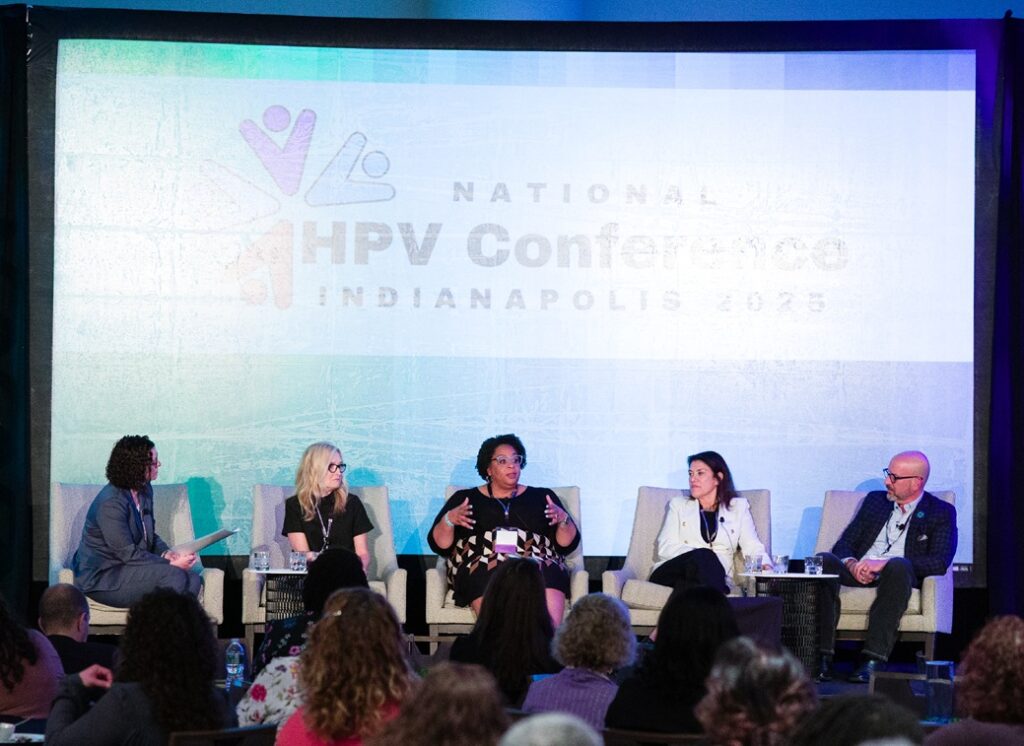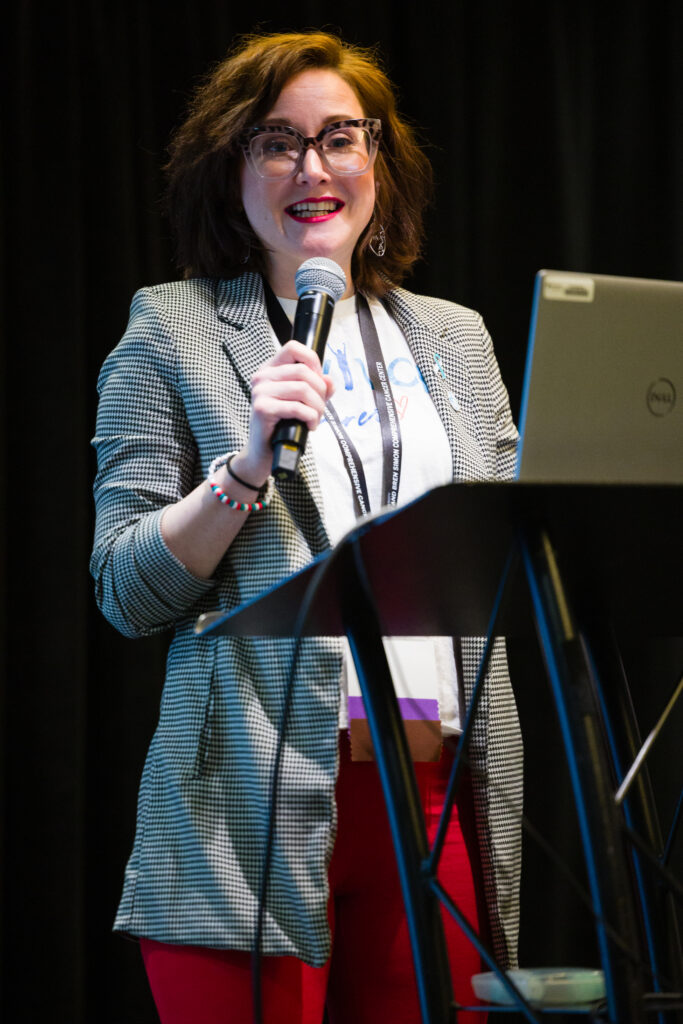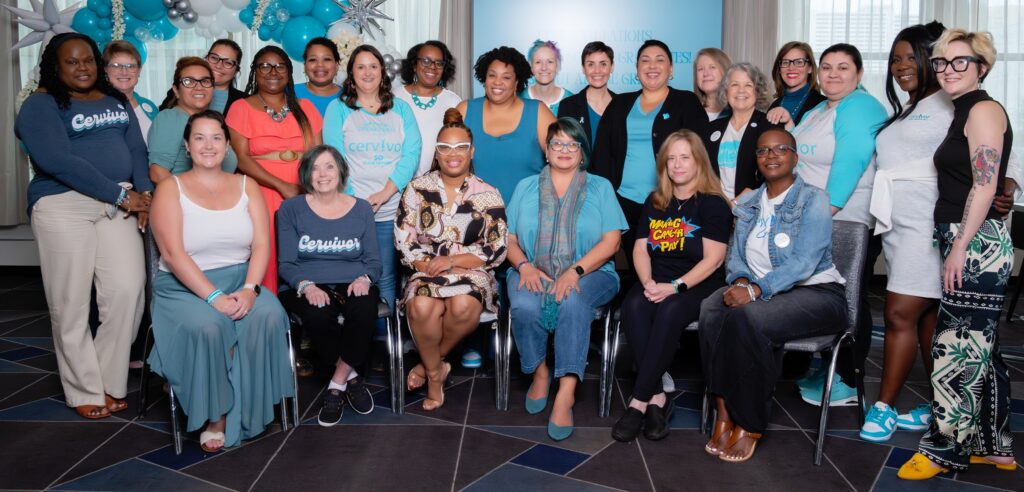At Cervivor, Inc., every month is Women’s Health Month. But this May, we’re taking the opportunity to spotlight a critical public health issue that disproportionately impacts women: HPV-related cancers.
HPV, or human papillomavirus, is an extremely common virus. According to the Centers for Disease Control and Prevention (CDC), approximately 85% of people will be exposed to the virus at some point in their lives. While many HPV strains are essentially harmless, high-risk strains are responsible for more than 37,000 new cancer cases each year in the U.S., including about 21,800 cases in women and 16,000 in men.
These cancers include vaginal, vulvar, anal, oropharyngeal, penile, and cervical cancer—what Cervivor is dedicated to eliminating. Cervical cancer remains the most common HPV-related cancer in women, with more than 11,000 new cases diagnosed annually.
The good news? Nearly all HPV-related cancers are preventable with tools like vaccination, regular checkups, and early treatment. Just last month, National Cancer Institute researchers reported “phenomenal” new data that a single dose of the HPV vaccine is just as effective as the two doses currently recommended for people aged 9 to 25!

“Knowledge is power—but it’s only the start,” says Tamika Felder, Cervivor’s Founder and Chief Visionary. “Preventable cancers like cervical cancer are on the rise because of complacency, stigma, and misinformation. Up-to-date cervical screenings have dropped over the past two decades, and HPV vaccine uptake was ‘flat’ from 2021 to 2023,” she says, citing an alarming recent report from the American Cancer Society. “The time to prevent suffering—and save lives from cervical and other HPV-related cancers—is now.”
The National HPV Conference: A Gathering of the Minds
Fortunately, Tamika and Cervivor aren’t the only ones prioritizing women’s health and tackling the ongoing challenges of HPV-related diseases. Over 400 attendees gathered with the same mission at the recent National HPV Conference in Indianapolis from April 15 to 17, 2025. Bringing together leading experts, healthcare professionals, researchers, policymakers, and survivors, the conference aimed to facilitate networking, collaboration, and resource sharing like “never done before” in the U.S.

Representing Cervivor, Tamika took part in a panel discussion moderated by Dr. Rachel Katzenellenbogen and included other HPV cancer and disease survivors, including recurrent respiratory papillomatosis survivor, Kim McClellan, anal cancer survivor Lillian Kreppel and tonsil cancer survivor Jason Mendelsohn, that underscored the human impact of HPV-related cancers. Later, she and Community Engagement Liaison, Morgan Newman, MSW—a metastatic and recurrent cervical cancer survivor—co-presented with leading global expert and author Dr. Linda Eckert in a session titled “Beyond the Data,” highlighting the power of personal narratives in advocacy.

A few other program highlights from the National HPV Conference:
- Keynote Addresses: Dr. Susan Vadaparampil, Associate Center Director of Community Outreach, Engagement, and Equity at Moffitt Cancer Center, delivered a keynote about the importance of advocacy and gave a special shoutout to the Cervivor community. Dr. Michelle Fiscus, Chief Medical Officer for the Association of Immunization Managers and Co-Chair of the National HPV Vaccination Roundtable, also gave a dynamic presentation on the current state of vaccination.
- Policy and Advocacy Discussions: Dr. Heather Brandt, Director of the St. Jude HPV Cancer Prevention Program, alongside Martha Nolan, Senior Policy Advisor at HealthyWomen, highlighted the critical role of legislative action and community engagement in HPV prevention efforts.
- Storytelling Session: Sally Perkins, a professional storyteller and cancer survivor, demonstrated the transformative power of storytelling in advocacy.
What’s Next: Challenges and Opportunities
“HPV-related cancers are still a greater threat in the developing world, but it’s alarming that preventable cancers are increasing here in the U.S.—especially as funding from the National Institutes of Health (NIH) and other public and private sources shrinks,” shares Morgan.

Fresh from the National HPV Conference, Morgan outlines several pressing challenges facing the HPV prevention movement:
Vaccine Hesitancy: Despite strong scientific evidence that the HPV vaccine is both safe and effective—and promising news that a single dose may be enough in the future—misinformation and mistrust persist. Disinformation campaigns and cultural stigmas around vaccines continue to suppress vaccination rates, particularly in vulnerable communities.
Policy and Funding: Sustained progress in HPV prevention relies heavily on legislative support and adequate funding. Cuts to public health budgets and shifting policy priorities threaten access to the HPV vaccine, routine screenings, and treatment services—especially in underserved areas.
Healthcare Access: Longstanding disparities in healthcare access, insurance coverage, and provider availability mean that too many people—especially in rural, low-income, and marginalized communities—still face barriers to prevention and early detection. Expanding equitable access to care remains a critical need.
Cervivor’s Response: Advocacy in Action
These challenges fuel our ongoing commitment to protect every person with a cervix from HPV-related cancers. Here’s how Cervivor is responding:

- Enhanced Education Campaigns: Cervivor is tackling vaccine hesitancy through culturally relevant messaging and resources via initiatives such as the Cervical Cancer Summit and Cervivor School, which aims to equip participants with the knowledge and confidence to advocate for HPV prevention within their communities.
- Empowering Survivors: Through our growing collection of Cervivor Stories, we amplify the lived experiences of patients and survivors to raise awareness, break stigma, and drive meaningful change.
- Advocacy and Policy Engagement: Members of Cervivor’s team and community proudly contribute to national coalitions including the National HPV Roundtable, National Roundtable on Cervical Cancer, HealthyWomen HPV Coalition, HPV Cancers Alliance, and the St. Jude HPV Cancer Prevention Program, helping shape policies that support prevention, access, and care.
- Addressing Disparities: Through grassroots, community-led conversations like DEI MeetUps, Black Cervix Chat, Cervivor Español, and international groups like Cervivor Africa and Cervivor Caribbean, we’re ensuring underrepresented voices are heard. (Visit our Events to see if there is a meetup or group that you’d like to join.) We also serve on advisory boards and research committees, championing patient advocacy in clinical trials, screening, and vaccination efforts.
This Women’s Health Month, we urge our Cervivor community and its allies to recommit to action. Preventable HPV-related cancers shouldn’t still be claiming lives. While cancer doesn’t discriminate, the systems surrounding it often do. It’s time to break down the barriers that stand in the way of prevention, early detection, and treatment.
If you believe in Cervivor’s mission to end cervical cancer and ensure that no one has to face it alone, please consider making a tax-deductible contribution today. Your support helps us continue our lifesaving work.